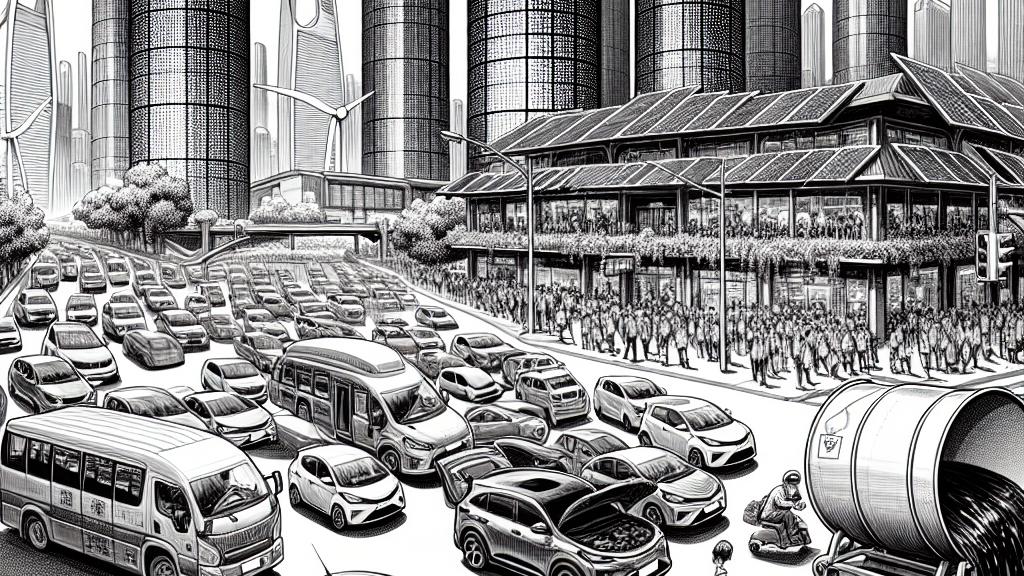Impact of China's EV Shift on Global Oil Market Dynamics
Overview
- In China, over 50% of new cars sold are now electric or hybrid vehicles.
- This significant shift dramatically reduces the country's oil demand.
- Declining oil prices globally reflect these changing consumption dynamics.

An Electric Revolution in China's Automotive Market
China, recognized as the largest automotive market globally, is witnessing a remarkable transformation in its car buying patterns. As of August 2024, a staggering 53% of newly sold cars are either electric vehicles (EVs) or plug-in hybrid vehicles (PHVs). This shift isn't just a passing trend; it embodies an urgent move towards more sustainable energy and reflects a broader societal change favoring environmentally friendly technology. For example, the Chinese government has rolled out substantial incentives, such as subsidies and tax breaks, to encourage adoption, showcasing their dedication to reducing carbon emissions and combating climate change. Moreover, recent figures indicate that EV ownership is growing exponentially, with projections suggesting that by the end of 2024, the total number of EVs on Chinese roads could exceed 30 million.
Oil Demand Plummets Amid EV Growth
The surge in electric vehicles in China is having profound ramifications for global oil demand. Analysts predict that gasoline consumption in the country could decline by more than 15%, sending shockwaves through the global oil market. This significant reduction in demand correlates with a noticeable drop in oil prices, which have fallen below $70 per barrel recently. Such a decline not only signals a shift in consumption patterns but also highlights the increasing pressure on oil-producing countries to adapt to this new reality. The ripple effects are already evident; for instance, traditional oil giants are beginning to diversify their portfolios and invest in renewable energy projects. Additionally, the shift towards EVs underscores a growing need for energy independence and sustainability, as nations reassess their energy strategies in light of changing market dynamics.
Global Implications and the Road Ahead
The implications of China's electric vehicle boom extend well beyond its borders, prompting a strategic reevaluation among automakers worldwide. Companies in the U.S. and Europe now face the challenge of balancing their investments between traditional internal combustion engine vehicles and the rapidly growing electric vehicle sector. As manufacturers like Tesla pave the way with innovative battery technologies, traditional car makers are under increasing pressure to modernize. Looking toward the future, it's clear that the ongoing trend of reduced gasoline consumption will significantly affect the global energy landscape. The combination of fluctuating oil prices and rising EV adoption illustrates a pivotal moment in history—a moment that demands creative solutions and a commitment to sustainable energy practices. Ultimately, China's enthusiastic embrace of electric vehicles is more than a market trend; it symbolizes a bold step toward a cleaner, greener, and more sustainable world.

Loading...